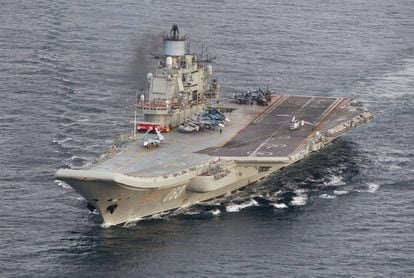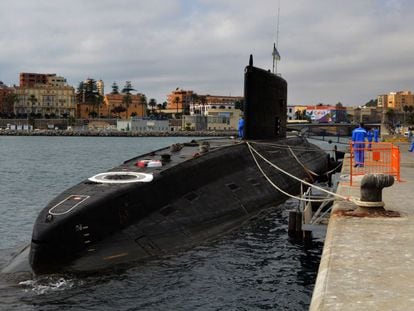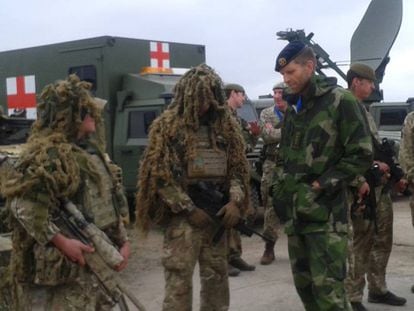NATO pressure forces Spain to review refuelling of Russian warships
Organization believes vessels taking on supplies in Ceuta may support bombing campaign in Aleppo


Spain is considering withdrawing permission for a fleet of Russian warships to take in supplies in its North African exclave of Ceuta after pressure from NATO allies.
“We are looking at the latest [supply] stops requested based on information requested by Russian authorities,” said a Foreign Ministry spokesperson on Tuesday.
We are concerned by the potential use of battle group to increase air strikes on Aleppo NATO Secretary General
The statement came just hours after NATO Secretary General Jens Stoltenberg repeated concerns that the fleet headed up by the Russian aircraft carrier Admiral Kuznetsov could play a support role in a final assault on the Syrian city of Aleppo by troops loyal to the regime of Bashar al-Assad – military action that has been heavily criticized by the European Union.
NATO has been keeping a close eye on the battle group since it sailed out of the Arctic port of Severomorsk several days ago. The fleet is being monitored by two NATO Standing Maritime Groups, the first of which is led by Spanish frigate Almirante Juan de Borbón. The Russian ships were also shadowed by two Spanish patrol boats as they made their way along the Spanish coast and passed through the Strait of Gibraltar on Wednesday morning.
Despite NATO concerns about the fleet, which includes a nuclear-powered battle cruiser and two anti-submarine warships, the Spanish government has also authorized boats escorting the Admiral Kuznetsov to stop at Ceuta and take on water, provisions and fuel.
“We are concerned by the potential use of that battle group to increase the number of air strikes on civilians in Aleppo,” Stoltenberg said.
He went on to add that it was “up to each nation to decide whether these vessels may obtain supplies and refuel at different ports along the route to the eastern Mediterranean.”
The Russian Navy regularly docks at Ceuta: more than 60 of its vessels have used the port since 2011. It provides a boost to the local economy, but the policy has drawn criticism from right-wing groups in the United Kingdom and the United States.
The Spanish Foreign Ministry spokesperson said on Tuesday that permission for such stops was granted on a case-by-case basis, depending on the nature of the ship involved and any possible security risks. The approval process was completely transparent and allies were informed, the spokesperson added.
Spain signed EU statement on Russian war crimes in #Aleppo last week; today helps refuel fleet on way to commit more atrocities. Seriously? pic.twitter.com/a0lYtMN3cV
— Guy Verhofstadt (@guyverhofstadt) October 25, 2016
But on this occasion, the authorization has generated controversy. The leader of the Liberal group in the European parliament, Guy Verhofstadt, tweeted: “Spain signed EU statement on Russian war crimes in #Aleppo last week; today helps refuel fleet on way to commit more atrocities. Seriously?”
The EU statement of last week called for an immediate ceasefire in eastern Aleppo, held by rebels, where several hundred people have been killed in a campaign backed by Russian air power since the breakdown of a truce brokered by Moscow and Washington.
“Since the beginning of the offensive by the regime and its allies, notably Russia, the intensity and scale of the aerial bombardment of eastern Aleppo is clearly disproportionate,” the EU said in a statement.
The EU condemned “the deliberate targeting of hospitals, medical personnel, schools and essential infrastructure” and the “use of barrel bombs, cluster bombs and chemical weapons” in the conflict, saying the use of such arms “may amount to war crimes.”
English version by George Mills.












































